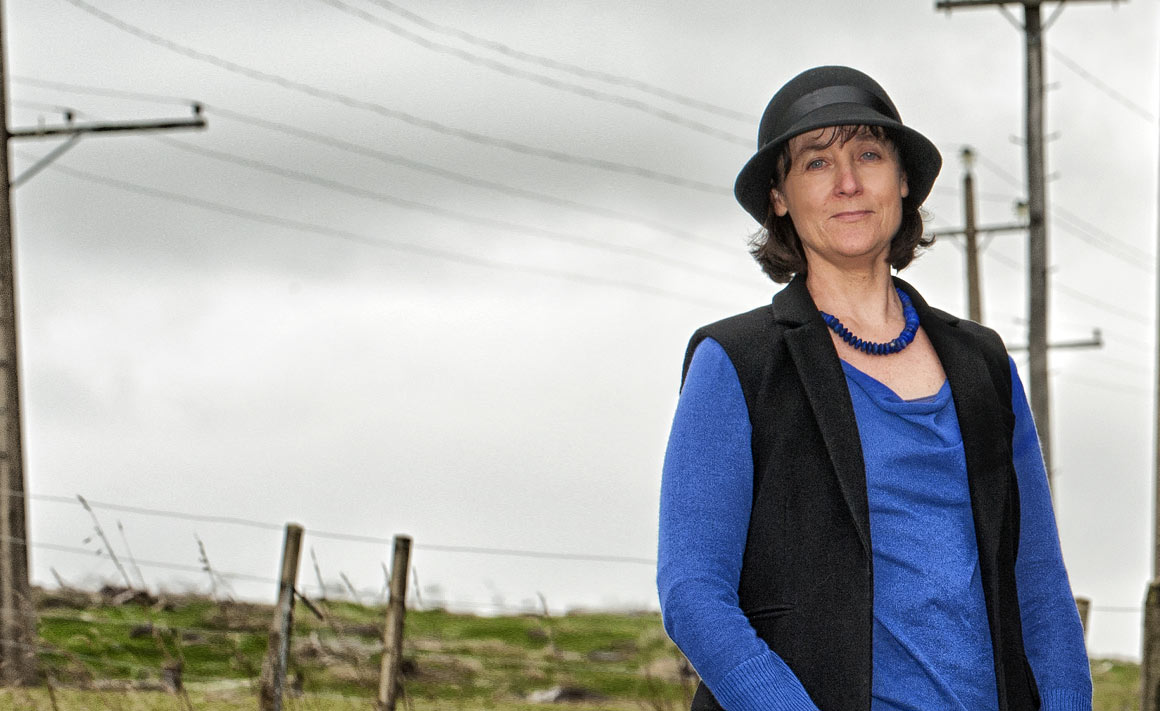 Monday 8 January 2018 11:24am
Monday 8 January 2018 11:24am
Otago's Energy Cultures programme has been a huge success, gaining gold status from the Ministry of Business, Innovation and Employment.
Dr Janet Stephenson, Director of Otago's Centre for Sustainability, doesn't just talk the talk. After due consideration, her household is converting the family car to run on electricity.
Social scientist Stephenson is well-placed to understand the need for change. She has been one of the driving forces leading two multidisciplinary programmes studying how households and businesses can change their use of energy and transport.
The two Energy Cultures studies, run sequentially over seven years, have been an international success. Principal funder the Ministry of Business, Innovation and Employment has recently awarded the programme gold status for performing above expectations.
Although the ministry's recognition is appreciated, it's the worldwide attraction to the concept of energy cultures that really pleases Stephenson.
“Energy cultures are where our technologies, practices and norms lock us in to certain patterns of – often inefficient – energy use. Our research examines these habitual patterns and what needs to be put in place to encourage change. We also examine situations where a change in energy culture is already occurring and try to pinpoint what is driving that change.
“Seeing the concept being adopted by other academics around the world is the best possible outcome. It is being used in England, Europe, America, Africa and elsewhere, and shows how influential a novel concept can be, especially when it is backed up with empirical evidence.”
The Centre for Sustainability carries out interdisciplinary research to support a sustainable future, which includes adopting renewable energy, using energy more efficiently and ensuring equitable access to energy services.
"We see energy as much more than a technical matter – we're interested in energy behaviour, business opportunities, mobility, fuel poverty, community initiatives and how to help stimulate change in a sustainable direction."
“Traditional single-discipline research tends to focus only on those aspects of a problem that are within the scope of its theories and methods. For example, it may focus just on psychology or engineering. In the energy cultures research we brought together people from a number of disciplines in the physical and social sciences. The energy cultures framework helped us work together to investigate issues from many angles and integrate the findings.”
Stephenson highlights the spread of disciplines among founding academics of the first Energy Cultures programme: Otago's Professors Emeriti Rob Lawson and Gerry Carrington, and Dr Paul Thorsnes, Waikato Professor Barry Barton and herself. “What a range of backgrounds – consumer psychology, physics, economics, law and sociology.”
75% of New Zealanders are “willing” or “very willing” to drive an EV in the future.
The second Energy Cultures programme built on the teamwork and knowledge of the first to investigate New Zealand's household, business and transport systems, looking at habitual patterns and how to change for the better.
Highlights included a study of national and international experts' views on the future of transport; developing empirical measures of the dimensions of energy culture; gaining new insights into efficient driving; finding “change levers” for businesses becoming more energy efficient; making contributions to electric vehicle policy; and building a system dynamics model of electric vehicle uptake.
The team communicated their findings creatively. “As well as conferences and papers, we used things like short videos, websites, social media and a set of illustrated policy briefs.
“By using the energy cultures concept we've found it easy to communicate with policymakers and people who are not academics. People just get it. It's important because of the challenges we face in New Zealand and globally, which will involve quite significant cultural changes.”
Now the Stephenson family is joining a growing movement for change with their own electric vehicle (EV).
“New Zealand's uptake of electric vehicles is doing well, but it could be a lot better. If you look at places where there's a really good uptake, such as Norway, you find consistent measures to stimulate that. Incentives in New Zealand are not that strong, even though EVs have much wider societal benefits than just to the buyer. For example, they reduce particulate emissions, reduce greenhouse gases and use home-grown electricity, which is better for our balance of payments.
"The policy question is also much bigger than just encouraging people to buy an electric vehicle. You need to look at what other vehicles are being imported at the same time because they may be cancelling out the benefits."
"Our work suggests that a “feebate” scheme applying to all imports would be the most effective signal – slightly increasing the cost of high-emissions vehicles and using those funds to slightly reduce the cost of low-emissions vehicles.”
New Zealand may be slow to act, but there does appear to be an increasing national and international demand for change. And the energy cultures idea is proving a useful tool in promoting action across the world.
“The concept of energy cultures, which we pioneered and developed as a social theory, has had a lot of take-up internationally and is being used in a range of ways that I never imagined. For any academic, that's very exciting.”
Many New Zealand households are already trending towards greater efficiency.
| 36% | Heat pump use grew from 26% in 2010 to 36% in 2016. |
| 55% | 55% of New Zealanders are interested in generating their own electricity from solar panels. |
| 20% | 20% of New Zealanders are interested in being independent from the electricity grid. |
Funding
- Ministry of Business, Innovation and Employment
- Energy Efficiency and Conservation Authority
- Ministry of Transport
- Foundation for Research, Science and Technology